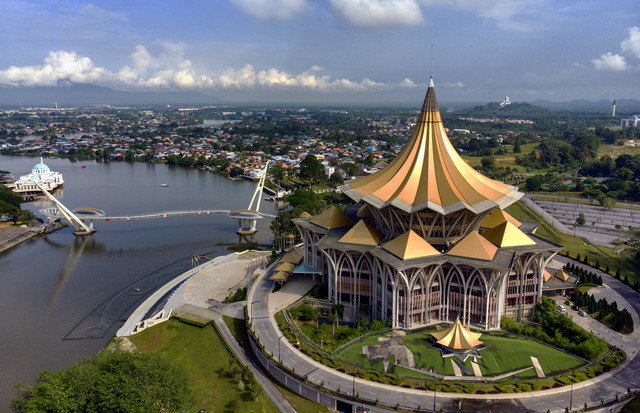
SIBU, Sept 1 (NNN-BERNAMA) – Sarawak, which was under the British colonial rule until July 22, 1963, reminiscences the dark moment of the pain in people’s lives which proves the importance and value of independence.
The history and bitter experiences were also shared by the generations living in the colonial era to their grandchildren, to teach them on the significance of respecting and preserving the independence inherited from older generations.
Sarawak’s move to participate in the formation of Malaysia with Malaya, North Borneo (Sabah) and Singapore on Sept 16, 1963, has strengthened the true meaning of independence in the state.
Once, the former Sarawak Internal Affairs Minister Tun Jugah Anak Barieng said ‘Anang Malaysia baka tebu, manis di pun tabar di hujung”, which means let’s hope that Malaysia will not end up as a sugarcane, sweet in the beginning, but turned less sweet in the end.
Actually, what he wanted to convey was that Sarawak must continue to enjoy the independence through the formation of Malaysia.
It was obvious that though the state was successfully liberated through the freedom fighters’ hardships and struggles, the people of Sarawak still yearn for sustainable development.
Tuai Rumah Kayan Nyelang from Kapit expressed his hope that the independence and the peace enjoyed should bring more infrastructure and economic development, so they could be implemented in the rural areas in the future.
“As a resident of the rural area, we are ‘thirsty for physical and economic development so that we can be par with urban population.
“We are not saying that there is no development in Kapit but we still need development that has been achieved and enjoyed by the people in Peninsular Malaysia,” he explained.
According to him, Kapit’s priority should be development of public utilities, infrastructure, roads, telecommunications, clean water and electricity.
A community leader from Belaga district, Pemanca Umek Jeno, 60 from the Kayan ethnic group, said the independence, peace and prosperity enjoyed by the people of Sarawak today were priceless and could not be traded for money.
“The independence provides a chance and freedom for the Sarawak young generation to take care of, manage and administer the state, as well as determine its own direction and future.
“Local people are more aware about the development that is needed for the people, and therefore, the planning for development must continue systematically, so it can benefit the people and the state,” he added.
According to Umek, the independence has also provided autonomy in certain areas to protect the rights of Sarawak so that all the benefits can be shared together.
With the autonomous power, he said in his opinion, the state government could manage and develop the resources of the state according to its own mould.
Echoing a similar sentiment, Abdillah Jhony from Sarikei said Sarawak needed its autonomous state right in line with the Malaysian Agreement 1963 (MA63) and the Federal constitution.
The 56-year-old administrative assistant said Sarawak was still lagging behind in many aspects including education even though it had been more than half a century after it had gained independence.
“By right, issues involving dilapidated schools should not rise anymore, but sadly, there are such schools in rural areas that need to be upgraded or reconstructed to create a safe and conducive teaching and learning environment,” he explained.
He also pointed out that there was less participation of Sarawakians although many had qualified for top posts in several sectors such as oil and gas, medical expertise, health, administration and education.
Elsewhere, Usahahjaya Baru village head Ali Sarani said the Sarawak concept for the people of Sarawak should be implemented so that many high-calibre and qualified Sarawak’s future generation would be given the opportunity to develop the state.
He said although Sarawak was rich with natural resources, the state could no longer rely on other parties to achieve progress like other states.
NNN– BERNAMA
